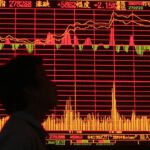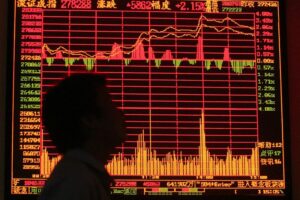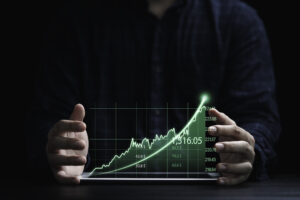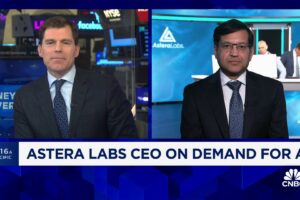
* Cyclicals lead rebound on Wall Street
* Nasdaq rebounds in late trading
* Oil rebounds, gold rise above $1,800 an ounce
* Graphic: World FX rates in 2020 http://tmsnrt.rs/2egbfVh
By Herbert Lash
NEW YORK, July 14 (Reuters) – Global equity markets rebounded on Tuesday, buoyed by a surge in cyclical stocks on Wall Street, in a bet the economic recovery would overcome a rollback of California’s reopening, while safe-haven gold prices solidified gains above $1,800 an ounce.
The euro rose versus the dollar on optimism about the possibility of a European Union stimulus package but market participants remained cautious, leading U.S. and euro zone government debt yields to fall.
A decline in U.S. consumer prices that showed core inflation remained well under the Federal Reserve’s target of 2% tapped Treasury yields down, as did concerns about lockdown restrictions announced Monday in California.
Europe’s broad FTSEurofirst 300 index closed down 0.79% and initially weighed on MSCI’s world equity index after a decline overnight in Asian equities. The global benchmark index, which tracks shares in 49 nations, turned around 0.14% on a rebounding Wall Street.
Cyclicals outperformed as technology shares were slammed on Wall Street and in Europe, where the tech subsector fell 2.6% in its biggest one-day sell-off in just over a month.
The Dow Jones Industrial Average rose 1.54%, the S&P 500 gained 0.7% and the Nasdaq Composite added 0.1% as Apple rose. Nasdaq’s gains were limited by declining Amazon.com and Facebook shares.
Technology and tech-related shares sold off and cyclicals rose, including financials, industrials and energy stocks, said Tim Ghriskey, chief investment strategist at Inverness Counsel in New York.
“Every once in a while cyclicals will outperform. These are the most beaten-up securities in the market. But they’re not the safe trade, which is tech-plus. That’s where the growth is,” Ghriskey said.
“But the cyclicals are extremely attractive from a valuation standpoint and an ultimate recovery standpoint. They have the most to gain back,” he said.
While the rollback of business reopenings may weigh on the economy, new coronavirus infections are hitting younger people and ultimately will not replicate earlier fatality rates, he said.
Oil rebounded. Brent crude settled up 18 cents at $42.90 a barrel. U.S. crude rose 19 cents to settle at $40.29 a barrel.
The euro rose 0.49% to $1.1396. The U.S. dollar index , which measures the safe-haven greenback against a basket of six rival currencies, slid 0.32% to 96.242.
Gold prices inched up, rising above the $1,800 level, underpinned by concerns over mounting coronavirus cases globally and as many regions reintroduced curbs to restrict the outbreak.
U.S. gold futures settled mostly unchanged at $1,813.40. Spot gold rose $5.7989 to $1,808.51 an ounce.
Fear can influence gold, said Kristina Hooper, chief global market strategist at Invesco in New York.
“On days when stocks are up and gold is up, part of the story is the Fed has made stocks attractive to investors, but there is apprehension that is driving up gold prices as well,” Hooper said.
U.S. consumer prices increased by the most in nearly eight years in June as businesses reopened, but the underlying trend suggested inflation would remain muted and allow the Fed to keep injecting money into the ailing economy.
The U.S. Labor Department’s consumer price index rose 0.6% last month, the biggest gain since August 2012, after easing 0.1% in May. The increase ended three months of declines and was driven by the rising price of gasoline and food.
Tension grew between Washington and Beijing after the United States rejected China’s claims to offshore resources in most of the South China Sea.
U.S. President Donald Trump scheduled a late afternoon news conference that will be related to Hong Kong and China, two administration officials said.
Tuesday is the deadline for the president to sign legislation approved by the U.S. Congress to penalize banks doing business with Chinese officials who implement Beijing’s draconian new national security law on Hong Kong.
The Shanghai index fell 0.7% despite official figures showing Chinese exports and imports topped forecasts in June, while China continued to buy significant amounts of commodities, including iron ore.
(Additional reporting by Pete Schroeder in Washington and Paulina Duran in Syndey; editing by Tom Brown and Bernadette Baum)












